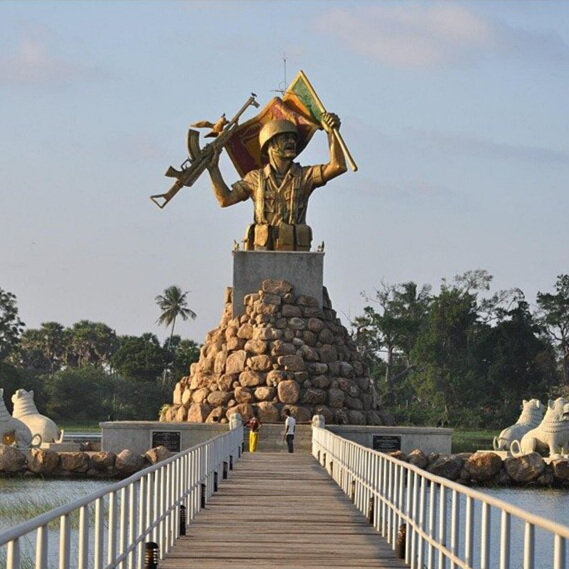Living with Violent Heritage: Contests and Coexistence in Post-War Sri Lanka (LiVHERe)
Funded by the British Academy, the Living with Violent Heritage exchange (LiVHERe) project is a partnership between University College London (UCL) and the International Centre for Ethnic Studies (ICES). LiVHERe provides new multidisciplinary insights into the relationship between heritage and conflict in the increasingly fraught setting of post-war Sri Lanka. Here, cultural and natural heritage have become weaponised tools of symbolic (and sometimes material) violence, inflaming inter-ethnic tensions and rupturing social cohesion in ways that policy makers and stakeholders have yet to address.
Long-standing ethno-nationalist contests have driven this process, but so have new post-war players and influences, including big business, international tourism, the Sri Lankan army and the UN. This project focuses on how marginalised, minority and displaced groups experience and respond to such violent heritage. LiVHERe seeks to also widen understanding of the capacity of heritage to function as a mechanism for peace, truth and reconciliation, especially when deployed at a grassroots level.
This project examines state-led and community-driven heritage practices in post-war Sri Lanka. It includes a focus on recent developments, namely:
civil war heritage and memorialization, orchestrated by the army on the one hand, and by local civic groups on the other, in former conflict zones of Tamil-dominated northern and eastern Sri Lanka
the recovery of intangible heritage through oral history, in grassroots projects that aim to recover inclusive understandings of a common Sri Lankan past and are intended as reconciliatory mechanisms.
Conversely, this project adds to our understanding of the range of groups which now mobilize and deploy heritage in post-war Sri Lanka, by addressing heritage-centred grassroots reconciliation ventures. It asks whether such avowedly inclusive and implicitly secular ventures can inform state-led heritage practices that have so far been characterized by ethno-religious preferences, or whether these grassroots practices themselves present further evidence of the profound fissures in contemporary Sri Lankan society that remain a barrier to sustainable peace.
With its commitment to uncovering how marginalized, minority and displaced groups in Sri Lanka experience and respond to heritage practices noted above, this project engages directly with their function in the perpetuation of violence, both symbolically and, through official appropriations of land for monument-building and 'heritage preservation', physically.
Finally, the project address how the hierarchies evident in post-war Sri Lankan heritage preservation and restoration (which have so far mostly failed to address the over 1,450 estimated Tamil Hindu and Christian sites damaged or destroyed during the civil war) undermine the experience of equal citizenship in the country, and thus prevent a return to religious normalcy for so many of its inhabitants.




